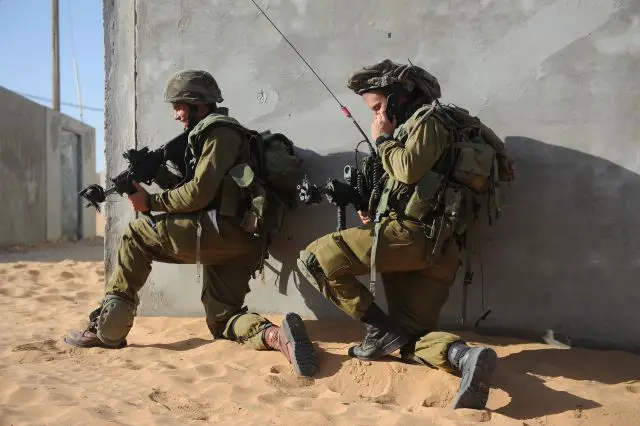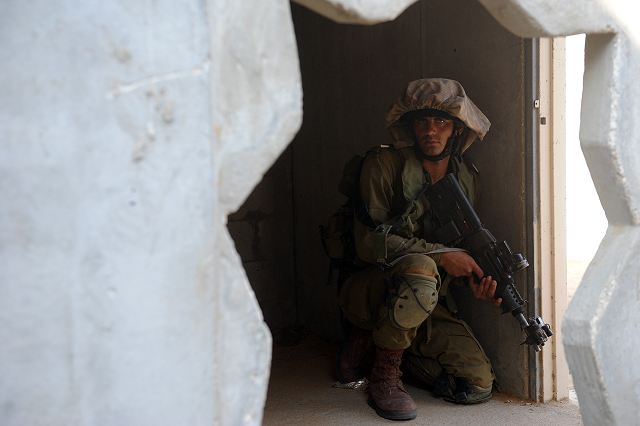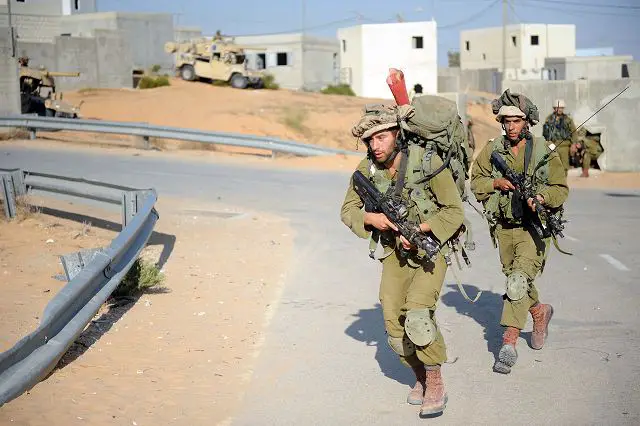Infantry soldiers of Israeli army ready to work closely with artillery and tanks for Urban Warfare 1
| a | |||
Israeli Army Urban Warfare |
|||
| Wednesday, October 16, 2013 03:37 PM | |||
| Infantry soldiers of Israeli army ready to work closely with artillery and tanks for Urban Warfare. | |||
The
nature of warfare is changing. According to Gefen Battalion commander
Lt. Col. Shai Kefler, infantry will have to be able to work more closely
with artillery and tanks in the future, in complex urban combat situations.
To prepare for this change, cadets from the Gefen Battalion, future infantry
officers, were tested in a tough urban warfare training exercise last
week. The exercise took place at the IDF Urban Warfare Training Center. |
|||
| |
|||
 Infantry soldiers of IDF (Israel Defense Forces) during Urban Warfare military training session |
|||
| |
|||
In the exercise, the cadets experienced a realistic and holistic battle situation with the addition of officers from the Armored Corps, the Artillery Corps, and UAV Skylark operators. “Urban terrain is something we will potentially have to deal with in both the south and in the north,” said the Gefen battalion commander. “The goal of the exercise is to train future platoon commanders to command infantry platoons in such terrain.” To
prepare for the future, practice must begin in the present, said Lt. Col.
Shai Kefler. “We’ve already begun putting all the different
aspects into training. Every cadet needs to understand all aspects of
the Ground Forces,” he said. “These future cadets fulfilled
the function of platoon commanders for the entirety of the exercise, including
moving towards the target, problems in squad formation, and running through
enemy sniper fire.” |
|||
 |
|||
During
the training, the cadets encountered many of the possible challenges that
they would need to deal with when operating in urban terrain, including
the presence of a terrorist network entrenched in a civilian area, booby-trapped
homes, and kidnappings by enemy forces.
The cadets also had to deal with some of the unique difficulties of urban combat. “Urban combat is slow-moving,” explained Urban Warfare Instructor Lt. Naif Kablan. “The enemy has the advantage of familiarity with the area, and has many options for hiding places.” |
|||
 |
|||
One
of these challenges is how to deal with a hostile civilian population.
“It’s a delicate situation: on the one hand, you know you
have to be careful not to harm the civilian population, but on the other,
a riot can start in a second,” said Lt. Kablan.
For some of the new Gefen Battalion cadets, this was their first time commanding a platoon during a battalion-wide exercise. “This was a good and an educational experience, from which I believe I have taken a big step forward in becoming a platoon commander,” said Cadet Shai Yafet, who commanded a platoon during the exercise. “We had to manage the fighting, provide cover for each other and maintain constant communication with the other commanders.” Cadet Yafet added one more challenge unique to being a commander: “We were awake throughout the entire night, and walked seven miles to the target. So one of our bigger challenges was to lead the platoon and make sure the soldiers didn’t get tired.” |
|||


























